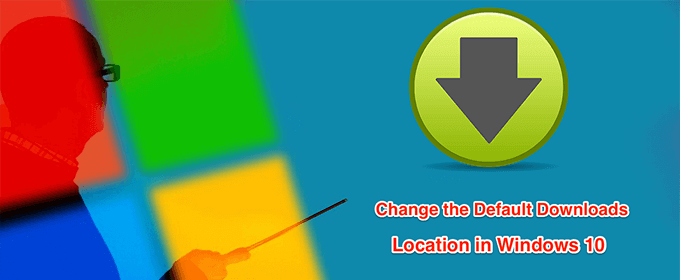

- Change default location for downloads how to#
- Change default location for downloads install#
- Change default location for downloads pro#
- Change default location for downloads download#
- Change default location for downloads windows#
Create a database for WordPress on your web server, as well as a MySQL (or MariaDB) user who has all privileges for accessing and modifying it.
Change default location for downloads download#
Change default location for downloads install#
However, if you wish to install WordPress yourself, the following guide will help. Fantastico) to automatically install WordPress for you. Under most circumstances, installing WordPress is a very simple process and takes less than five minutes to complete. WordPress is well-known for its ease of installation.
Change default location for downloads windows#
Please do check out my quite extensive Windows help library for hundreds of useful articles and tutorials while you’re visiting.
Change default location for downloads pro#
Pro Tip: I’ve been writing about Windows since the early days. Now you can either just change the Downloads folder location for Microsoft Edge or change it for every program on your Windows computer. Windows will prompt you to confirm:Īnd that’s it. To have this change recorded, click “Apply”.

To change it, click on “ Move…” and choose a different folder! If I were to opt to have all downloads show up on my Desktop, it’d look like this after the change: Again you can see the location of the Downloads folder on this particular PC. Notice I’ve clicked on the “ Location” tab in this window (and trimmed it down to make it fit better here in the article). Right-click on the Downloads folder…Ĭhoose “ Properties” and you’ll get a little window that looks the same as it did way back in Windows 95: Instead of the usual start menu, it’ll bring up a list of settings:įrom this point, choose “ File Explorer” and we’ll basically have the same view we had two images ago, just in icon view instead of list view:Īt this point we’re going into some classic Windows settings trickery. Start by right-clicking on the Start Menu icon on your TaskBar. CHANGE DEFAULT DOWNLOADS FOLDER LOCATION FOR WINDOWS 10īut let’s say that you’d rather just change the Downloads location for every single program on your Windows PC. You can choose Desktop, for example, by clicking on it on the left side of the window then choosing “ Select Folder” on the bottom. It also shows the current location – mine is \\vmware-host\Shared-Folders\Downloads – and lets you change that location to Desktop or similar with a click or tap on the “ Change” button…Įasy enough. One option you could choose is to have Edge ask you where to save each file before a download begins (just slide the control to the right). No surprise, choose “ Downloads settings” and you’ll find it’s pretty darn easy to see where your downloads are being saved:

” link on the top right of any browser window.Let’s start with changing the download location just within Microsoft Edge itself.
Change default location for downloads how to#
To be relatively agnostic, I’m going to show you how to change both of these locations so you can fine tune your Win10 experience!
:max_bytes(150000):strip_icc()/LocationMove-7dafa46d6b574dbf9e78be8e945720b8.jpg)
There are also some tutorials online that talk about how to change the location of all downloads from every program you might use as a way to solve this problem, which is a bit odd since Microsoft Edge lets you easily change it just for the browser itself. You can check right now if you’re reading this in Edge: Just type Control-J. Like many modern Web browsers, Microsoft Edge also has a Downloads view where you can see everything you’ve downloaded and easily access individual files too, as we’ll see in just a moment or two. In fact, that’s a good folder to check for abandoned files occasionally if you don’t have any pending downloads, it should be empty, but some programs are sloppy at removing install files and can gobble up valuable disk space. By default all of your downloads from Windows programs should end up in your Downloads folder, which you can get to by opening up a File Manager window.


 0 kommentar(er)
0 kommentar(er)
